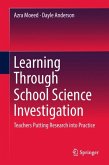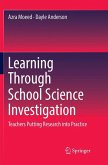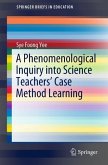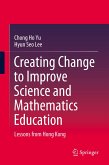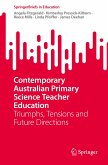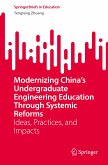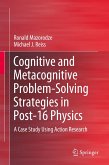This book presents the findings of a case study conducted in a Maori medium school where a space was created for Putaiao (Western science) teaching and learning from year 1 to 13. Science is currently taught in Te Reo Maori in primary school and in English in secondary school, and evidence suggests that students are engaging in science education, learning to investigate, and achieving in science.
In New Zealand, most students attend English medium state schools; however, approximately 15% of indegenous students attend Maori medium schools. These schools are underpinned with Kura Kaupapa Maori philosophy, which is culturally specific to Maori and aims to revitalise the Maori language, and Maori knowledge and culture. Maori students' engagement and achievement continues to be a challenge for both mainstream and Maori medium schools, teachers and students due to lack of access to science teachers who can teach in Te Reo Maori. School leaders and whanau (families) believed that by year 9 (age 13) their students had developed their identity as Maori, and were proficient in Te Reo Maori. They wanted their students to have the option to learn science, experience success and have the choice to conitnue in science, so they made the difficult decision for science to be taught in English in secondary school.
The book discusses how teachers in indigenous schools, who have extensive knowledge of culture and context specific pedagogies, can gain confidence to teach science through collaboration with and support from researchers with whom they have developed strong professional relationships.
In New Zealand, most students attend English medium state schools; however, approximately 15% of indegenous students attend Maori medium schools. These schools are underpinned with Kura Kaupapa Maori philosophy, which is culturally specific to Maori and aims to revitalise the Maori language, and Maori knowledge and culture. Maori students' engagement and achievement continues to be a challenge for both mainstream and Maori medium schools, teachers and students due to lack of access to science teachers who can teach in Te Reo Maori. School leaders and whanau (families) believed that by year 9 (age 13) their students had developed their identity as Maori, and were proficient in Te Reo Maori. They wanted their students to have the option to learn science, experience success and have the choice to conitnue in science, so they made the difficult decision for science to be taught in English in secondary school.
The book discusses how teachers in indigenous schools, who have extensive knowledge of culture and context specific pedagogies, can gain confidence to teach science through collaboration with and support from researchers with whom they have developed strong professional relationships.


